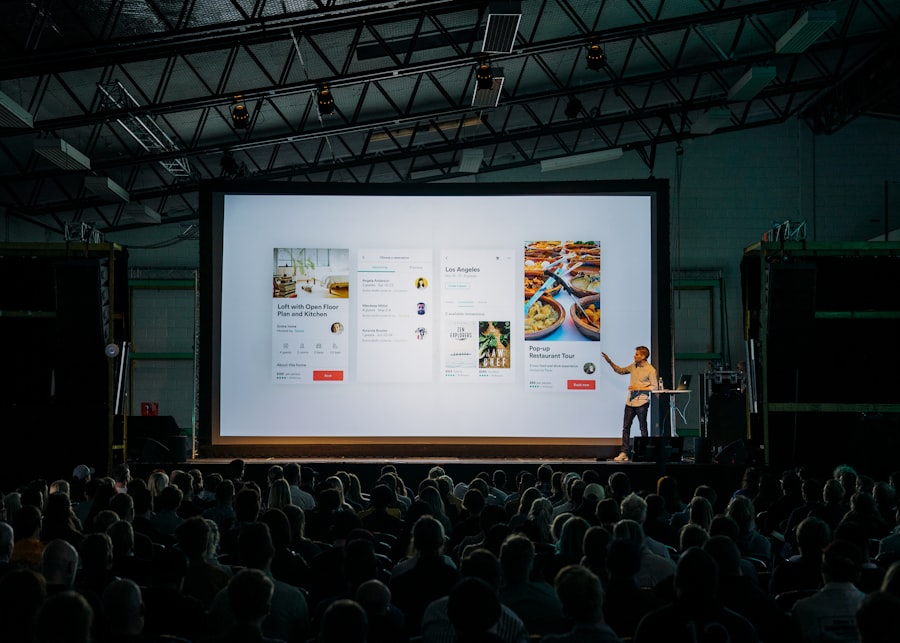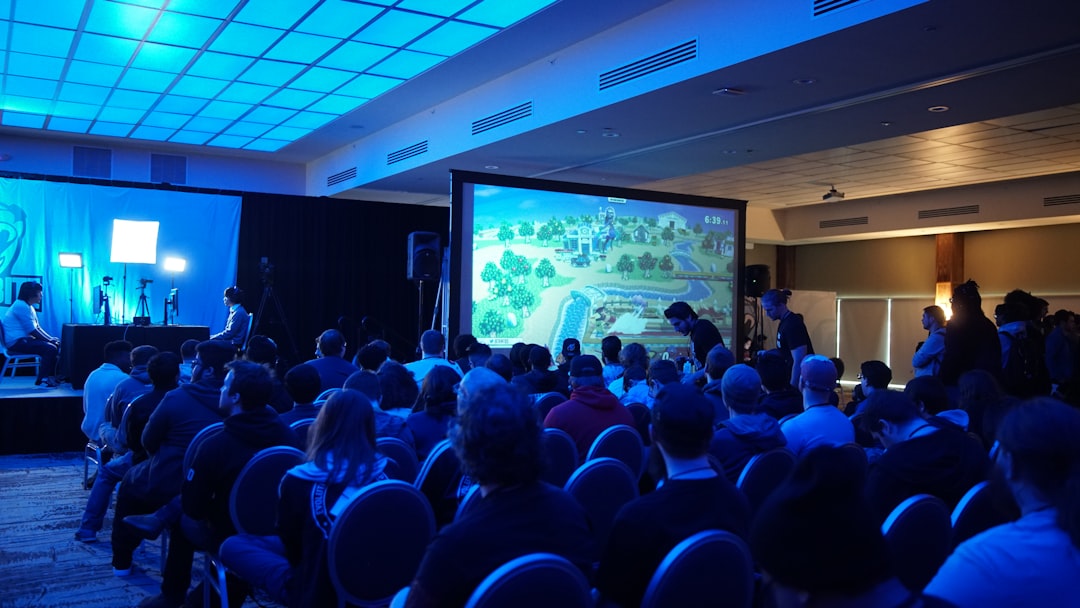The concept of the Metaverse has evolved from a niche idea in science fiction to a burgeoning reality that is capturing the imagination of technologists, entrepreneurs, and consumers alike. At its core, the Metaverse represents a collective virtual space where users can interact with a computer-generated environment and other users in real-time. This immersive digital universe encompasses a variety of experiences, from gaming and social interaction to commerce and education.
As the Metaverse continues to develop, it is becoming increasingly clear that it holds significant potential for economic transformation. The convergence of digital and physical realities is creating new avenues for commerce, social interaction, and creative expression.
Companies are investing heavily in building their presence within this digital landscape, recognizing that the Metaverse could redefine how we engage with brands and consume products. With the rise of virtual reality headsets and augmented reality applications, users are beginning to experience these digital environments in ways that were previously unimaginable, paving the way for a new era of economic activity.
Key Takeaways
- The Metaverse is a virtual reality space where users can interact with a computer-generated environment and other users.
- Virtual economies have the potential to revolutionize traditional economic systems by creating new opportunities for trade and commerce.
- Challenges in the Metaverse include issues of security, privacy, and the need for effective governance to ensure economic growth.
- Cryptocurrency plays a significant role in the virtual economy, providing a decentralized and secure means of exchange.
- Virtual economies have the potential to impact traditional markets by creating new competition and opportunities for innovation.
The Potential of Virtual Economies
Virtual economies are emerging as a powerful force within the Metaverse, offering unique opportunities for innovation and growth. These economies are characterized by the creation, exchange, and consumption of digital goods and services, often facilitated by virtual currencies. In many cases, these economies operate independently of traditional financial systems, allowing users to engage in transactions that are not bound by geographical or regulatory constraints.
This independence fosters creativity and entrepreneurship, enabling individuals to monetize their skills and creations in ways that were not possible in the physical world. One of the most compelling aspects of virtual economies is their ability to create new markets for digital assets. Non-fungible tokens (NFTs), for example, have gained immense popularity as a means of representing ownership of unique digital items, such as art, music, and virtual real estate.
These tokens have opened up new revenue streams for artists and creators while providing collectors with a way to invest in digital culture. The ability to buy, sell, and trade these assets within virtual environments has led to the emergence of vibrant marketplaces where users can engage in commerce without the limitations imposed by traditional economic models.
Challenges and Opportunities for Economic Growth in the Metaverse

While the potential for economic growth within the Metaverse is substantial, it is not without its challenges.
Currently, many virtual environments operate in silos, making it difficult for users to transfer assets or experiences from one platform to another.
This lack of interoperability can stifle innovation and limit the overall growth of virtual economies. For the Metaverse to reach its full potential, developers must work collaboratively to create standards that facilitate seamless interactions across various digital spaces. Another challenge lies in the question of accessibility.
While the Metaverse promises to democratize access to economic opportunities, disparities in technology access can create barriers for certain populations. High-quality virtual experiences often require advanced hardware and stable internet connections, which may not be available to everyone. Addressing these disparities will be crucial for ensuring that the benefits of virtual economies are equitably distributed.
Initiatives aimed at improving digital literacy and expanding access to technology will play a vital role in fostering inclusive growth within the Metaverse.
The Role of Cryptocurrency in the Virtual Economy
| Metrics | Data |
|---|---|
| Number of Cryptocurrencies | Over 10,000 |
| Market Capitalization | Over 2 trillion |
| Bitcoin Dominance | Around 40% |
| Transaction Speed | Varies by cryptocurrency |
| Energy Consumption | Varies by cryptocurrency |
Cryptocurrency plays a pivotal role in shaping the landscape of virtual economies within the Metaverse. Digital currencies provide a decentralized means of conducting transactions, allowing users to buy, sell, and trade assets without relying on traditional banking systems. This decentralization not only enhances security but also empowers users by giving them greater control over their financial interactions.
Cryptocurrencies such as Bitcoin and Ethereum have gained traction as mediums of exchange within various virtual environments, facilitating seamless transactions across borders. Moreover, blockchain technology underpins many aspects of virtual economies by ensuring transparency and traceability in transactions. Smart contracts—self-executing contracts with the terms directly written into code—enable automated transactions that can occur without intermediaries.
This innovation reduces costs and increases efficiency while minimizing the risk of fraud. As more platforms adopt cryptocurrency as a standard form of payment, we can expect to see an increase in user engagement and economic activity within the Metaverse.
Impact of Virtual Economies on Traditional Markets
The rise of virtual economies is poised to have profound implications for traditional markets. As consumers increasingly engage with digital environments, businesses must adapt their strategies to meet changing consumer preferences. The ability to create immersive shopping experiences within the Metaverse presents an opportunity for brands to connect with customers in novel ways.
Virtual storefronts can offer personalized experiences that leverage data analytics to tailor offerings based on individual preferences. Additionally, the emergence of virtual goods—items that exist solely within digital environments—challenges conventional notions of value and ownership. As consumers become more accustomed to purchasing digital assets, businesses may need to rethink their product offerings and pricing strategies.
The success of brands like Gucci and Nike in launching virtual products demonstrates that there is a growing market for digital fashion and accessories. This shift could lead to a re-evaluation of supply chains and inventory management as companies explore ways to integrate both physical and digital offerings.
Regulation and Governance in the Metaverse

Addressing Key Concerns
Issues such as consumer protection, intellectual property rights, and taxation require careful consideration as governments strive to oversee these emerging digital landscapes. These concerns must be addressed to ensure the long-term viability and sustainability of virtual economies.
The Role of Self-Regulation
One potential approach to addressing these concerns is the establishment of self-regulatory organizations within the Metaverse. These organizations can create guidelines for ethical behavior and best practices among users and businesses alike, helping to foster trust within virtual economies. By addressing concerns related to fraud, harassment, and other negative behaviors that can arise in online spaces, self-regulatory organizations can play a vital role in promoting a safe and secure environment for all users.
Collaboration and Innovation
Ultimately, collaboration between industry stakeholders and regulators will be essential for developing policies that promote innovation while safeguarding users’ rights. By working together, it is possible to create a regulatory framework that supports the growth of virtual economies while protecting the interests of all parties involved.
Social and Cultural Implications of Virtual Economies
The rise of virtual economies also carries significant social and cultural implications. As individuals increasingly spend time in digital environments, their interactions and relationships may evolve in ways that challenge traditional social norms. The ability to create avatars and assume different identities allows users to explore aspects of themselves that may not be possible in the physical world.
This freedom can foster creativity and self-expression but may also lead to issues related to identity and authenticity. Furthermore, virtual economies can serve as platforms for cultural exchange and collaboration across geographical boundaries. Artists from diverse backgrounds can share their work with global audiences, transcending limitations imposed by physical distance.
However, this interconnectedness also raises questions about cultural appropriation and representation within digital spaces. As creators draw inspiration from various cultures, it becomes essential to navigate these dynamics thoughtfully to ensure that all voices are respected and valued.
Predictions for the Future of the Virtual Economy
Looking ahead, the future of the virtual economy appears promising yet complex. As technology continues to advance, we can expect further integration between physical and digital realms. The proliferation of augmented reality (AR) applications may blur the lines between these spaces even more, creating hybrid experiences that enhance our daily lives while providing new avenues for economic activity.
Moreover, as more individuals embrace remote work and flexible lifestyles, virtual economies may become increasingly central to how people earn a living. The gig economy is already witnessing a shift toward online platforms where freelancers can offer their services globally; this trend is likely to accelerate within the Metaverse as users seek out new opportunities for income generation. In conclusion, while challenges remain on the horizon—ranging from regulatory hurdles to issues of accessibility—the potential for growth within virtual economies is vast.
As we navigate this uncharted territory, collaboration among stakeholders will be crucial for shaping a future where economic opportunities are abundant and equitable for all participants in the Metaverse.
If you are interested in exploring the philosophical implications of the metaverse, you may want to check out the article “If We Asked Diogenes About the Metaverse, What Would He Say?“. This thought-provoking piece delves into how the ancient Greek philosopher Diogenes might view the concept of the metaverse and its impact on society. It offers a unique perspective on the intersection of technology and philosophy in the digital age.
FAQs
What is the metaverse?
The metaverse is a collective virtual shared space, created by the convergence of virtually enhanced physical reality and physically persistent virtual reality. It is a concept that has gained popularity in recent years due to advancements in technology and the increasing integration of virtual and augmented reality experiences.
What is the role of economists in the metaverse?
Economists play a crucial role in understanding and analyzing the economic implications of the metaverse. They study how virtual economies function, the impact of virtual goods and services on real-world economies, and the potential for new economic opportunities within the metaverse.
How does the metaverse impact traditional economies?
The metaverse has the potential to impact traditional economies in various ways, including the creation of new job opportunities, the development of virtual goods and services markets, and the integration of virtual experiences into real-world economic activities. Economists study these impacts to better understand the implications for traditional economies.
What are some potential economic opportunities in the metaverse?
Some potential economic opportunities in the metaverse include virtual real estate development, virtual currency trading, virtual goods and services creation, and the development of virtual experiences for entertainment, education, and business purposes. Economists analyze these opportunities to assess their potential impact on the economy.
How does the metaverse affect consumer behavior?
The metaverse can influence consumer behavior by offering new ways to interact with products and services, creating virtual experiences that may impact real-world purchasing decisions, and providing opportunities for virtual consumption. Economists study these effects to understand how the metaverse may shape consumer behavior.

Leave a Reply